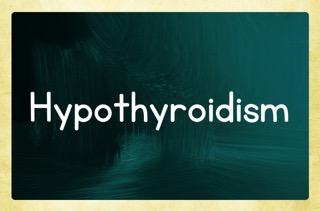
Your doctor says your hypothyroid condition has been treated, but do you still suffer from symptoms of low thyroid function?
- Fatigue
- Weight gain
- Hair loss
- Constipation
- Depression
- Memory loss
- Cold hands and feet
If so, you may suffer from Hashimoto's, an autoimmune disease that attacks and destroys the thyroid bland.
Hypothyroidism is usually caused by Hashimoto's, an autoimmune disease
Hypothyroidism means your thyroid gland is under functioning and not producing enough thyroid hormone. This is bad news because every cell in the body depends on thyroid hormones. Including brain cells. This explains why people with untreated or poorly managed hypothyroidism are at higher risk for rapid brain decline.
Hypothyroidism affects millions of Americans, many of them whom continue to suffer from worsening health despite treatment. What's more, 90 percent of hypothyroid cases are caused by autoimmune Hashimoto's. As Hashimoto's gradually destroys the thyroid gland, this lowers thyroid function, causing myriad symptoms.
Lab tests can identify Hashimoto's by testing for TPO and TGB antibodies. If positive, these markers indicate an autoimmune disease is attacking the thyroid gland. It's vital to dampen the inflammatory autoimmune attacks against the thyroid and balance the immune system.
However, thyroid hormone medication may still be necessary if damage is already extensive.
How to manage Hashimoto's hypothyroidism
Managing Hashimoto's hypothyroidism is rarely a quick fix. Instead, it involves a multi-faceted approach to diet and lifestyle to reduce inflammation and autoimmune flares against the thyroid. Strategies include:
Adopt a strict gluten-free diet. Numerous studies show a strong link between Hashimoto's hypothyroidism and gluten In fact, people with a gluten intolerance are genetically more prone to Hashimoto's disease. Gluten sensitivity also promotes inflammation and leaky gut, which flares autoimmune diseases such as Hashimoto's hypothyroidism.
Adopt an autoimmune diet. For many people, going gluten-free is not enough to manage Hashimoto's hypothyroidism. You may need to go deeper with an anti-inflammatory diet that eliminates common inflammatory foods, such as dairy, eggs, grains, legumes, and other foods. A whole-foods, Paleo-based diet that emphasizes plenty of produce and eliminates processed foods is important to manage Hashimoto's hypothyroidism.
Repairing a leaky gut. Leaky gut, or intestinal permeability, typically plays a primary role in Hashimoto's hypothyroidism and other autoimmune diseases. In leaky gut the lining of the small intestine becomes inflamed, damaged, and porous, allowing undigested foods, bacteria, fungus, and other foreign invaders into the sterile environment of the bloodstream where they trigger inflammation and autoimmunity.
Stabilize blood sugar. Stabilizing blood sugar is vital to managing Hashimoto's hypothyroidism. A diet high in sugars and refined carbohydrates (such as breads, pastas, pastries, and desserts) spikes inflammation, skews hormones, and flares autoimmunity. Energy crashes, fatigue after meals, excess belly fat, hormonal imbalances, mood swings, and sleep issues are all signs you may have low blood sugar or high blood sugar (insulin resistance).
These are just a few of the basics of autoimmune management for Hashimoto's hypothyroidism. Ask my office for more information.



Latest from the Blog
Navigating Tick-Borne Infections: Ozone Therapy as a Holistic Approach to Lyme Disease and Co-Infections
April 8, 2024Tick-borne infections, particularly Lyme disease and its co-infections, pose a significant health challenge for individuals worldwide. Characterized by complex symptoms and often elusive diagnoses, these infections can wreak havoc on the body’s immune system and overall well-being. Amidst the conventional treatments available, there’s a growing interest in exploring complementary therapies such as ozone therapy within […] Read more
Latest from the Blog
Unlocking Hope: Ozone Therapy as a Complementary Approach to Cancer
Cancer remains one of the most challenging health issues of our time, affecting millions of lives worldwide. While conventional treatments such as chemotherapy and radiation therapy have made significant strides in cancer management, many patients seek complementary approaches to enhance their treatment outcomes and alleviate side effects. Ozone therapy, a promising modality in functional and […] Read more